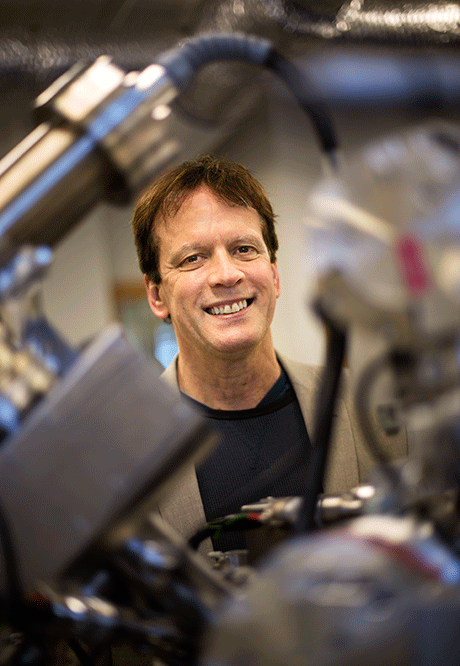Professor Richard Neutze and Professor Andrew Ewing have received the European Research Council's Advanced Grant, one of the world's finest research grants.
The European Research Council (ERC) promotes investigator-driven research of the highest quality in all scientific areas through extensive and long-term funding. ERC Advanced Grants are awarded to established world-class researchers with significant research efforts over the past ten years.
 Richard Neutze and Andrew Ewing, both professors at the Department of Chemistry and Molecular Biology at the University of Gothenburg, have been awarded an ERC Advanced Grant of EUR 2.5 million for a period of 5 years.
Richard Neutze and Andrew Ewing, both professors at the Department of Chemistry and Molecular Biology at the University of Gothenburg, have been awarded an ERC Advanced Grant of EUR 2.5 million for a period of 5 years.
- It is exciting to have this opportunity to bring our work using X-ray user facilities to new challenges in biochemistry. Over the last decade we have collaborated internationally using X-ray free electron lasers in California and Japan. With similar user facilities now opening in Europe the project is very timely. Our work will also benefit from current developments at MAX IV Laboratory in Lund, Sweden’s state-of-the-art synchrotron radiation facility, says Richard Neutze.
ERC supports top research, multi- and interdisciplinary projects and ground-breaking ideas in new and emerging areas. ERC Advanced Grants are aimed at well-established and outstanding scientists. Advanced Grants may be awarded up to EUR 3.5 million for a period of up to five years.
- The project builds upon my expertise in time-resolved X-ray methods and Gisela Brändén's biochemical knowledge of the proteins we are going to study. We will investigate the protein that creates energy for the chemical processes in our cells using the oxygen we inhale. With the help of time-resolved structural studies, we want to make a movie at atomic level about what happens when living cells get energy through cellular respiration, says Richard Neutze.
 Andrew Ewing, Professor in analytical chemistry, hopes that his research project will give a better understanding of the chemical processes of brain cells and in the long term, provide tools to cure diseases that damage short-term memory such as Alzheimer’s.
Andrew Ewing, Professor in analytical chemistry, hopes that his research project will give a better understanding of the chemical processes of brain cells and in the long term, provide tools to cure diseases that damage short-term memory such as Alzheimer’s.
- I work with brilliant students, postdocs and collaborators with great ideas. This is an ambitious project with many controversial parts, some of which might not work. That, however, makes it exciting and it is the kind of work that the ERC supports to drive science forward, says Andrew.
More information about Andrew Ewing’s research (link opens in new window)
More information about ERC Advanced Grant (link opens in new window)
Photo 1: Richard Neutze
Photo 2: Andrew Ewing